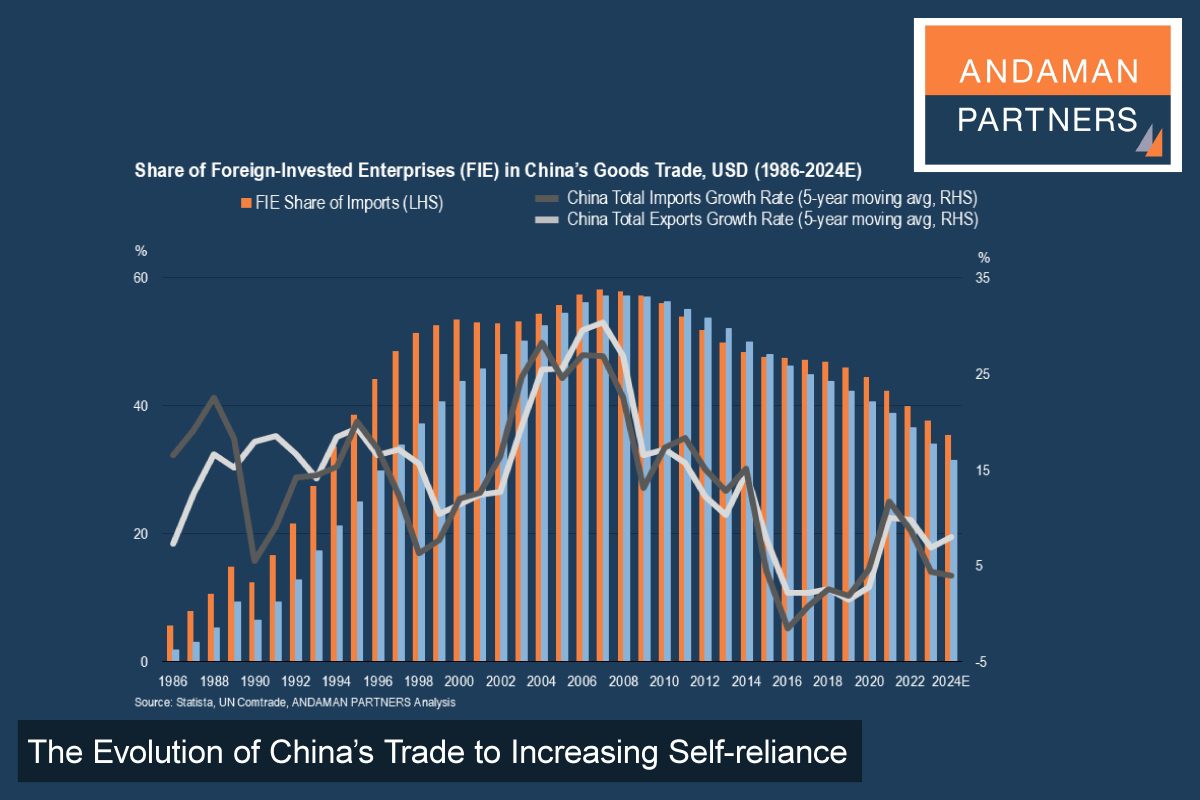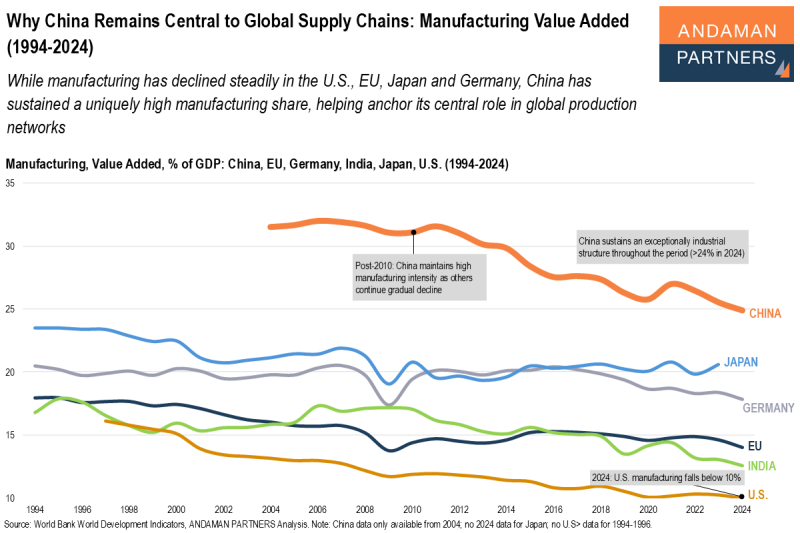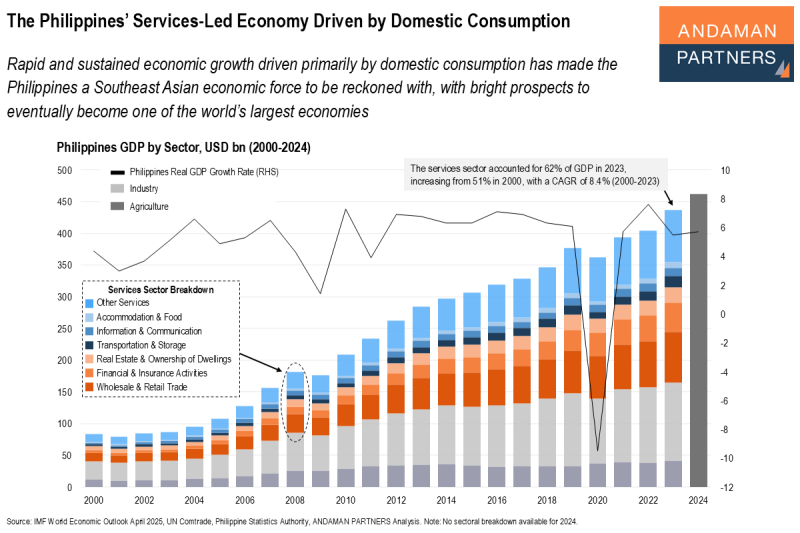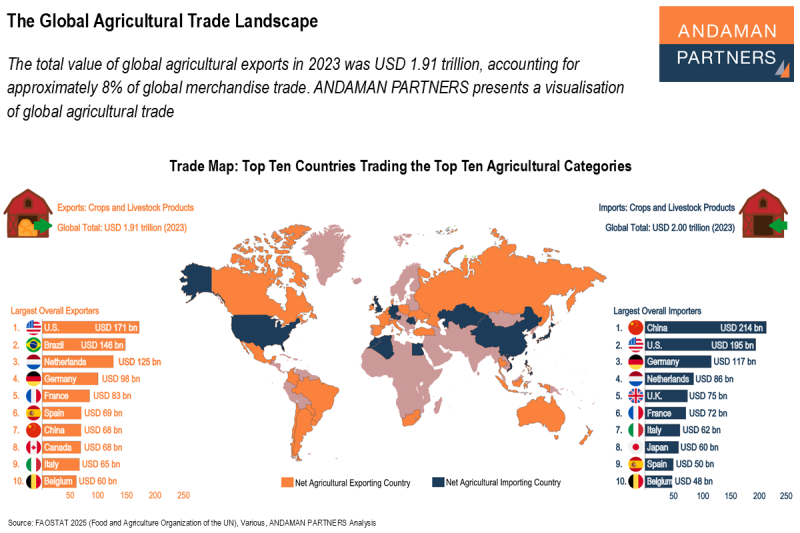As China steadily rose in the rankings of global trade up to the 2010s, the share of foreign-invested enterprises in the country’s trade likewise increased, reaching a peak in 2007-2008. From that point onwards, as fully Chinese-owned enterprises progressively became global players, the contribution of foreign-invested enterprises steadily decreased, reflecting the increasing self-reliance of China’s trade.
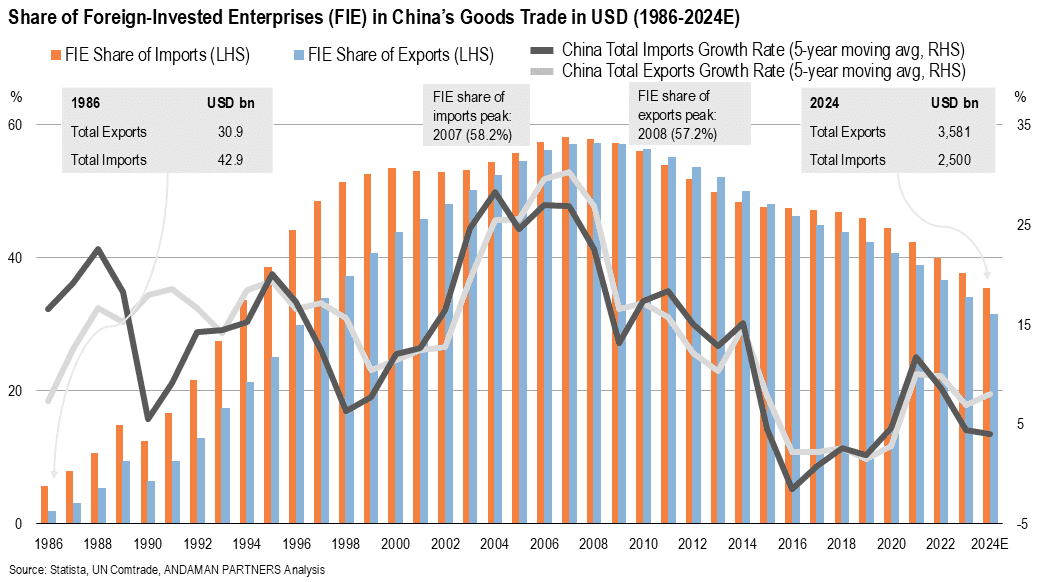
In 1990, China’s exports amounted to around USD 30 billion, placing it outside the world’s top ten exporting countries in 11th place. By 2010, China had become the world’s leading exporter and second-largest importer behind the U.S. Over this period, the share of foreign-invested enterprises in China’s trade rose steadily, peaking in 2007 at 58.2% for imports and in 2008 at 57.2% for exports.
By 2010, however, with China now a dominant player in global trade, a significant change had occurred. As fully Chinese-owned enterprises progressively became global players, the share of foreign-invested enterprises started to decline precipitously:
- In 1990, the percentage share of foreign-invested enterprises in imports was 12.4% and 6.4% for exports.
- In the succeeding decades, this share increased year-by-year, surpassing 50% for imports in 1998 and the same level for exports in 2003.
- The peak for imports occurred in 2007 at 58.2% and for exports in 2008 at 57.2%.
- Since then, the role played by foreign-invested enterprises has decreased substantially to (in 2023) 37.8% for imports and 34.0% for exports, levels last seen in 1995 and 1997, respectively.
- In 2024, we estimate that the share for imports declined to 35.5% and that for exports to 31.5%.
Foreign-invested enterprises played a key role in making China the world’s largest exporter and second-largest importer, but since 2007, China’s trade has shifted precipitously to self-reliance.
ANDAMAN PARTNERS supports international business ventures and growth. We help launch global initiatives and accelerate successful expansion across borders. If your business, operations or project requires cross-border support, contact connect@andamanpartners.com.

ANDAMAN PARTNERS to Attend Investing in African Mining Indaba 2026 in Cape Town
ANDAMAN PARTNERS Co-Founders Kobus van der Wath and Rachel Wu will attend Investing in African Mining Indaba 2026 in Cape Town, South Africa.

Join ANDAMAN PARTNERS at Networking Event in Cape Town Ahead of Mining Indaba 2026
ANDAMAN PARTNERS is pleased to support and sponsor this popular Pre-Indaba event in Cape Town.

AAMEG Event in Cape Town Ahead of Mining Indaba 2026
ANDAMAN PARTNERS is pleased to sponsor and support the AAMEG pre-Mining Indaba Cocktails & Canapes event.
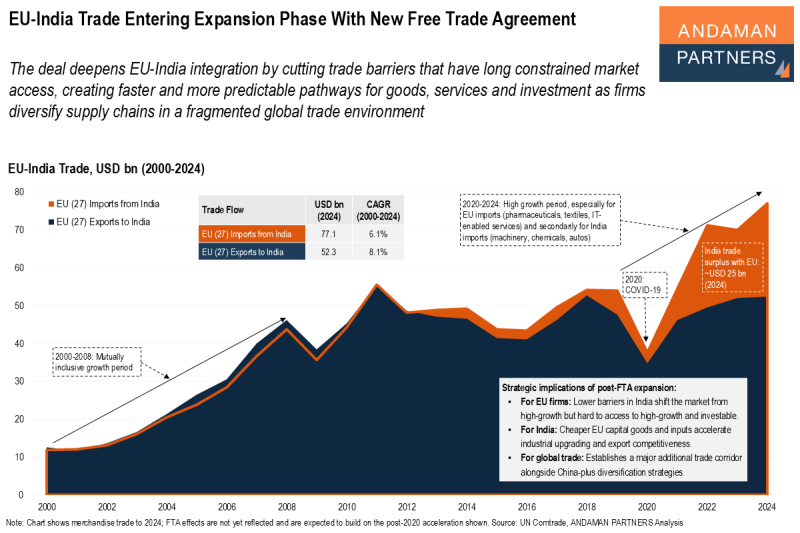
EU-India Trade Entering Expansion Phase With New Free Trade Agreement
The deal deepens EU-India integration by cutting trade barriers that have long constrained market access.
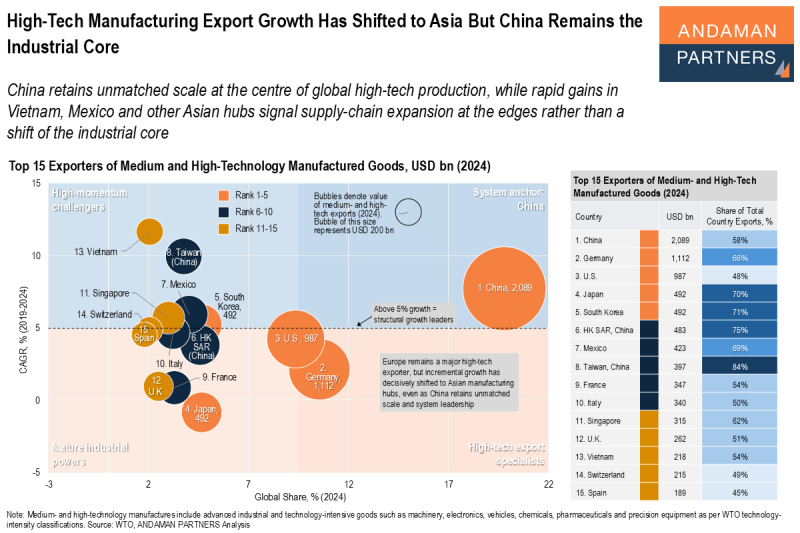
High-Tech Manufacturing Export Growth Has Shifted to Asia, But China Remains the Industrial Core
China retains unmatched scale at the centre of global high-tech production, while rapid gains in Vietnam, Mexico and other Asian hubs.
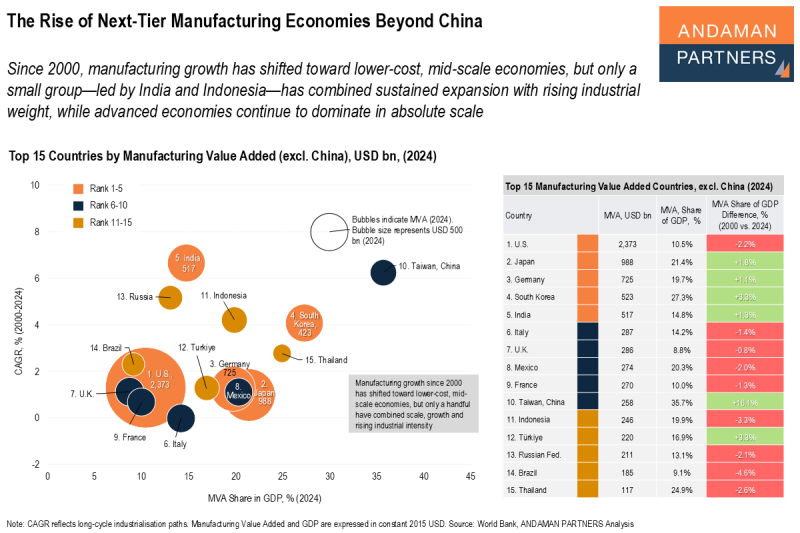
The Rise of Next-Tier Manufacturing Economies Beyond China
Manufacturing growth shifted toward lower-cost, mid-scale economies, but only a small group has combined sustained expansion with rising industrial weight.

